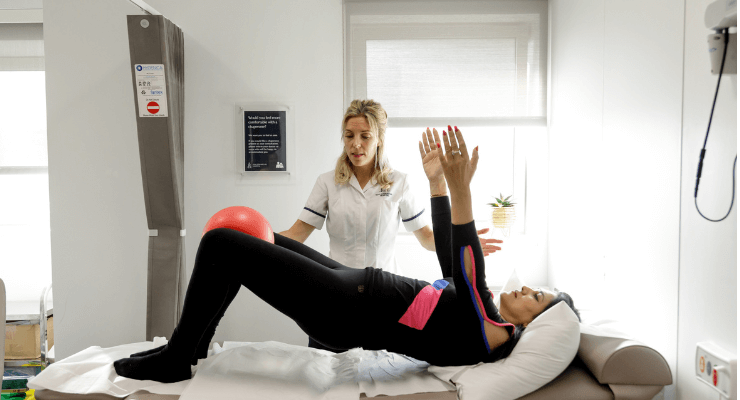Urinary incontinence: 5 ways you may be making your symptoms worse

Urinary incontinence can be triggered by many different factors such as coughing, sneezing, laughing or moving suddenly as well as being related to an urge or sudden desire to go to the toilet. It can also be caused by certain medical conditions or from damage to the bladder.
It’s a common condition, but one that can leave you feeling embarrassed. It can also make day to day life, working, socialising, exercising and travelling difficult to manage.
Sometimes investigations help understand your condition and diagnosis, and the input of a specialist physiotherapist, medication or surgery can help cure the problem.
Positive lifestyle changes can help alleviate some of the triggers of urinary incontinence. Here, King Edward VII’s Hospital consultant, Mr Arvind Vashisht explains five ways you could be making urinary incontinence worse without realising, and what you can do to better manage your condition yourself.
1. Being overweight or obese

There are various different types of urinary incontinence. One of the most common is stress urinary incontinence. This means that when sudden stress, or pressure, is placed on your bladder, it causes you to leak urine.
This stress can be from coughing, sneezing, laughing or lifting heavy weights. It doesn’t mean that being stressed will cause urinary incontinence. (Although there is evidence to suggest that there is a link between being stressed and experiencing urinary incontinence.)
Being overweight or obese also puts extra strain on the bladder and urethra. This can either cause urinary incontinence, or make it worse.
Carrying extra weight can also put extra pressure on the pelvic floor muscles, the muscles that keep all of the pelvic organs in place. If these muscles become weak, the bladder and urethra are not as well supported, which can lead to urinary incontinence symptoms getting worse.
Losing weight by following a healthy diet and exercising regularly, will gradually help to reverse the symptoms of stress urinary incontinence.
2. Smoking

Studies have shown that smoking can make you three times more likely to develop urge urinary incontinence (when the urge to pass urine is sudden and desperate).
It’s thought that this is because the nicotine and other toxins in cigarettes can irritate the bladder, causing it to contract more frequently, leading to urinary incontinence problems worsening.
Also, smoking can cause a persistent and chronic cough, which adds to the pressure placed on the bladder, leading to more urine leakage.
Quitting smoking is a lifestyle change that can help you manage your urinary incontinence.
Your pharmacist can help you with nicotine replacement devices, gums and patches and direct you to local support groups that can help you quit.
3. Drinking the wrong things, at the wrong time

Staying hydrated is important for good overall health and wellbeing. But the more you drink, the more urine your body produces. If you have urinary incontinence, this will mean that you leak more urine.
It’s therefore best to avoid or limit drinks that contain caffeine, as these have a greater diuretic (urine producing) effect. Caffeinated drinks include tea and coffee as well as cola and energy drinks.
Alcoholic beverages also have a diuretic effect, so try to limit your alcohol intake.
But avoiding too many fluids can also make your symptoms worse. Being dehydrated leads to dark, concentrated urine which can irritate the walls of the bladder, causing them to contract more often, and leak more urine.
Every person is unique, so try to balance your need to stay hydrated with how much fluid can make your urinary incontinence worse.
If urinary incontinence is a problem for you at night, it’s also best to avoid drinking too many fluids in the evening, and to avoid them completely just before bed.
4. Constipation

Being constipated every once in a while, is perfectly normal. But if it’s a common occurrence for you, and you have to regularly strain to pass a stool, then you could be causing urinary incontinence, or making it worse.
Straining to pass hard, dry stools puts pressure on the bladder and urethra, just like coughing or sneezing does. It can lead to a permanent weakening of the pelvic floor muscles and worsening urine leakage.
To keep your bowels regular, it’s recommended that you eat a diet rich in fibrous fruits, vegetables and whole grains such as brown bread and pasta.
Staying hydrated is also essential for preventing constipation.
5. High impact sports

Staying active helps to maintain a healthy weight and helps prevent constipation, which can both cause urinary incontinence.
But there are some sports which can make the symptoms of stress urinary incontinence worse. These include high impact activities such as running and activities that include a lot of jumping, such as high intensity interval training (HIIT) and aerobics.
These kinds of activities place pressure on the bladder, which can cause it to leak urine during exercise.
To help prevent this, avoid caffeine or alcohol prior to exercising and make sure you empty your bladder just before you begin.
If you enjoy running and jumping, there’s no reason why you should stop if your urinary incontinence is minor. Just make sure you take necessary precautions such as wearing incontinence pads or underwear.
Otherwise you could try lower impact sports such as yoga and swimming.
More information
- If you think you have urinary incontinence and would like further advice, try speaking to your GP. (Don’t have a GP?)
- To discuss your symptoms with Mr Vashisht, you can contact us to book an appointment
- Additionally our Urology Department can provide further information and assistance in managing your symptoms.










